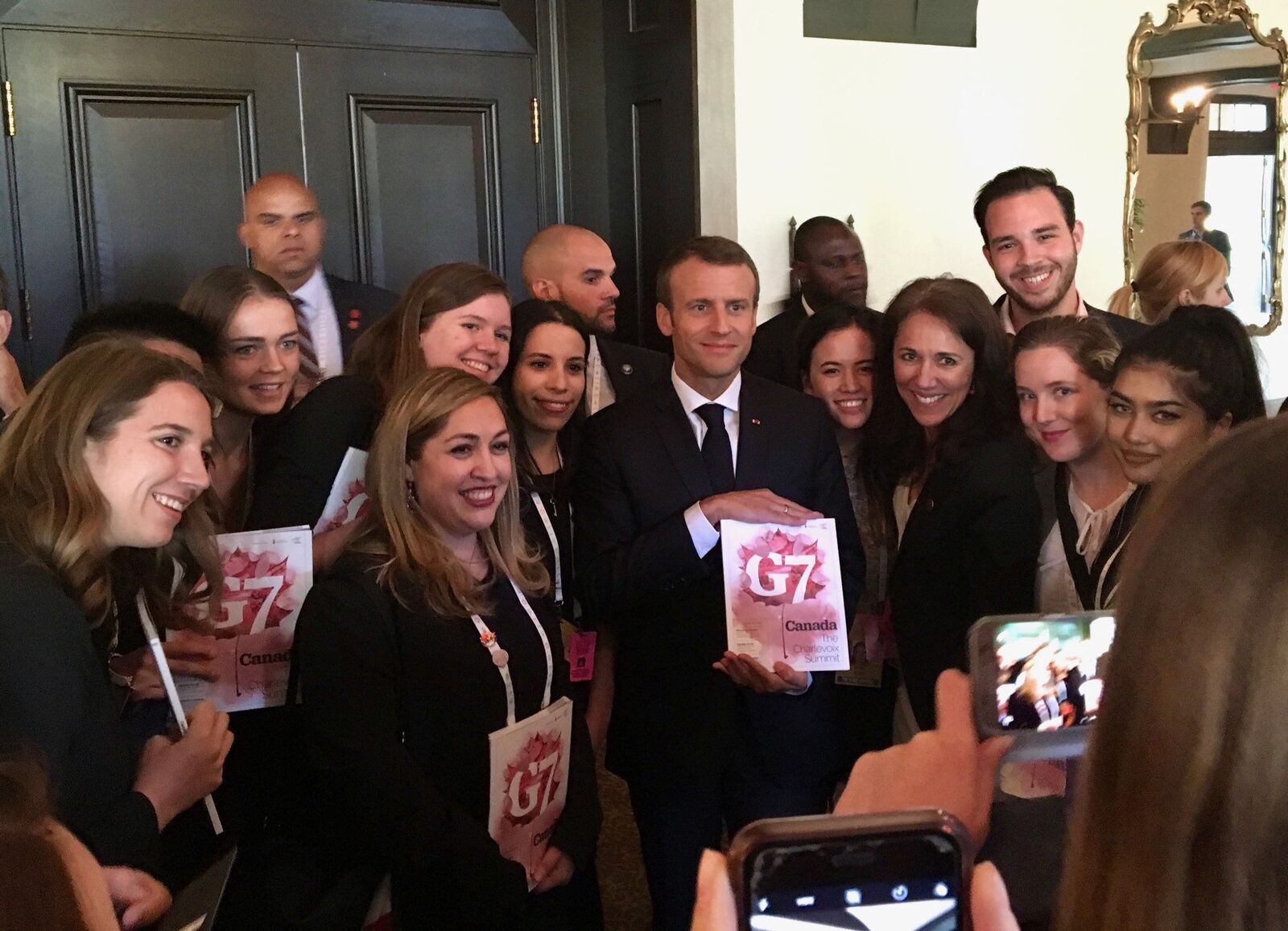G7 Biarritz Summit – 24 to 26 August, 2019
There is still intolerable inequality in today’s world – not only in terms of income, but also access to education, healthcare, or even drinking water. And in many countries, the situation for women is even worse. Beyond the suffering it causes, inequality makes the status quo unbearable and legitimately fuels of many of the social and political protests which are destabilizing certain world regions.
Climate change hits vulnerable populations even harder. It heaps inequality on inequality and insecurity on insecurity. This is why climate change will be a major priority of our G7 year.
As soon as it takes up the G7 Presidency on 1 January 2019, France will tackle the roots of this scourge and make genuine progress towards the day on which Article 1 of the Declaration of the Rights of Man and of the Citizen will become a reality.
To face this challenge, France is overhauling the format of the G7: in 2019, it will be your G7, for our future – and not just a behind-closed-doors meeting between Heads of State and Government.
The highlight of this year of discussions and actions will be the G7 Summit in Biarritz, southwestern France, from 24 to 26 August 2019.
Source www.elysee.fr
Stronger together
Because most issues are now global (from regulating trade to fighting climate change, not to mention resolving the migrant crisis and many other challenges), six countries decided in 1975 to join forces to work together by creating the “G6”, which became the “G7” in 1976.
The seven G7 countries were Canada, France, Germany, Italy, Japan, the United Kingdom and the United States. Since 1977, there has been another guest at the discussion table: the European Union.
The G7 Presidency is held on a rotating basis, with a different member each year setting out the main items on the agenda. France will include many partners (e.g. international organizations, NGOs, local government, researchers, businesses) in each of its G7 priorities. This G7 will be a collective effort.
Five goals for fighting inequality
In 2019, to allow everyone to have the same opportunities in life regardless of background, gender or where they live, but also to ensure global stability and peace, France wants the G7 objectives to be:
Fighting inequality of opportunity, promoting in particular gender equality, access to education and high-quality health services;
Reducing environmental inequality by protecting our planet through climate finance and a fair ecological transition, preserving biodiversity and the oceans;
Promoting more fair and equitable trade, tax and development policies;
Taking action for peace, against security threats and terrorism which weaken the foundations of our societies;
Tapping into the opportunities created by digital technology and artificial intelligence.
A final communiqué
The goal of the G7 is to approve new actions to be put in place to fulfil the objectives (pre-defined ones in the case of the G7 in 2019).
How will we reach these decisions?
Many stakeholders (elected representatives, experts, civil society representatives, businesses, etc.) form working groups and draw up proposals.
The Ministers prepare solutions in their respective fields of expertise.
The leaders adopt an action plan, published in the form of a communiqué upon conclusion of their discussions.
Throughout the year, the “sous-sherpas” and “sherpas” (personal representatives of the Heads of State and Government) prepare the Summit based on this work.
Citizens shaping their own future
Since the fight against inequality concerns all stakeholders in society (e.g. citizens, businesses, public decision-makers), the President of the French Republic, Emmanuel Macron, has decided to renew the format of the G7.
We cannot make genuine, effective progress without bringing all parties to the table, including public decision-makers, businesses and citizens. President Macron has already adopted this method with regard to the climate, with the One Planet Coalition which is organizing concrete climate action by bringing together all relevant stakeholders, such as associations and businesses.
He has decided to apply this format to the G7.
Since it is citizens who will be most directly affected by the decisions taken at the G7, they will be closely involved in the process.
Everyone will have their say: young people (Youth 7), women (Women 7), non-governmental organizations (C7), unions (Labour 7), employers (Business 7), research centres (Think Tanks 7) and academies of science (Science 7).
Africa: a G7 partner
The fight against inequality concerns all continents.
This G7 will not just be a meeting between seven countries but rather an opportunity to work more broadly with everyone who shares our values and is willing to take action to move forward together.
African countries will have a special place among the partners present.
Africa is a breeding ground for development challenges, but also for opportunities to build future equality. It would make no sense to look at solutions for the future without including the world’s youngest continent. Africa will thus be a special partner in the G7 discussions on peace, the climate and regional integration.
How? By creating, through enterprise and innovation, new opportunities for young people.
Gender equality and climate: two priorities for changing our daily lives
Fighting global inequality means fighting for gender equality and combatting violence against women, but also preserving our planet.
We cannot discuss inequality without highlighting the inequality facing half of the world’s population: women. President Emmanuel Macron has made this the key issue of his term and aims to take ambitions measures in this area.
The effects of climate change (hurricanes, floods, respiratory diseases, etc.) particularly affect the most vulnerable people. The fight for the climate centres around two points: slowing climate change and protecting those who bear the brunt of it. A session at the One Planet Summit, held in Biarritz, will deal with concrete solutions for the climate, biodiversity and the oceans.
These two commitments provide an opportunity to turn our priorities into realities by targeting dual French certification of the French Presidency in the areas of the environment and gender equality.













